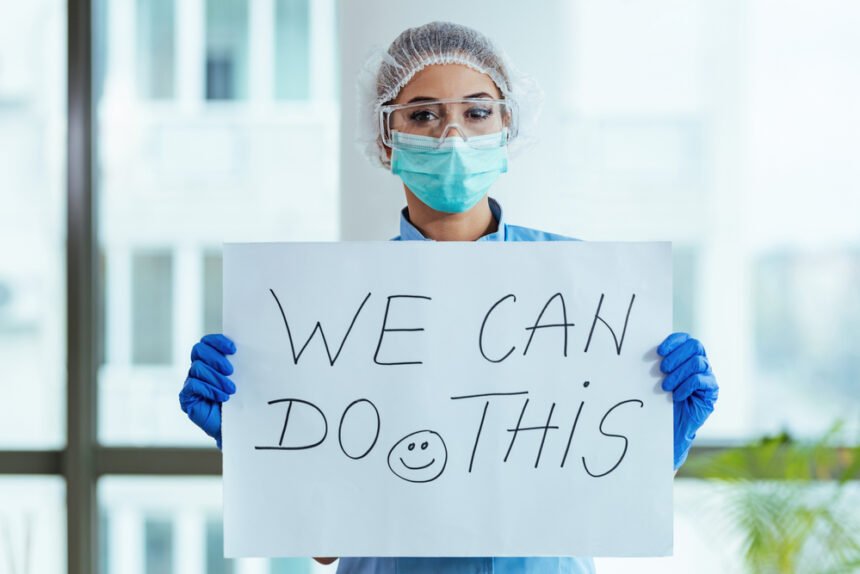The world has been stuck in a months-long crisis due to the COVID-19 pandemic. With normal life thrown into turmoil, it’s easy to forget that the virus is not the only health problem we’re facing in the world. Other pressing public health crises continue to exist, and may even be exacerbated by the current situation. We can’t turn our backs on the ongoing health issues affecting people all over the world, even as we continue to battle COVID-19. Here are 5 issues that need our time and attention, even now.
STDs
Sexually-transmitted diseases (STDs) range from mild to severe and include diseases like HIV/AIDS, chlamydia, gonorrhea, herpes, and syphilis. Some diseases may be asymptomatic but can cause issues like infertility. Many people are unaware that they have been infected or don’t have access to testing and continue to spread STDs or STIs to multiple partners. In addition to infecting sexually-active and consenting adults, STDs are passed along to many victims of sexual assault by their abusers and can even be passed from mother to child during pregnancy or childbirth. Many people do not receive adequate education on sexual health and may not be able to get tested regularly. It’s not a topic that comes up often, but STDs continue to be a major public health crisis worldwide.
Maternal Health
Carrying and giving birth to a baby is inherently dangerous. Before women had access to modern medicine, a large percentage of mothers died during childbirth. Today, most maternal deaths are preventable, but that’s not always how things work out. Unfortunately, many women even today do not receive the maternal care they need throughout their pregnancy and during birth. While maternal deaths occur in every country, 94% occur in developing countries, with many women in these regions unable to access adequate care. Bleeding, infections, preeclampsia, unsafe abortions, and complications during delivery are the most common causes of maternal death. Sadly, the youngest mothers are also at the highest risk for maternal death. We need to protect and support maternal health during and after pregnancy and childbirth, and ensure that women all over the globe have access to quality care.
Alcohol-Related Injuries & Health Issues
Alcohol is often a social staple and many people consume it in moderation without any severe health issues. However, alcohol addiction, injuries, and accidents caused by alcohol consumption, and long-term health issues related to alcohol use constitute a public health crisis that needs to be better managed. Drunk driving, addiction, liver disease, high blood pressure, and birth complications are just a few of the issues that can occur due to excessive alcohol consumption. In the United States, there are about 88,000 deaths each year from excessive alcohol use. It’s a public health crisis that’s ongoing and extremely challenging due to the social and cultural factors surrounding the consumption of alcoholic beverages. Additionally, COVID-19 is making it even harder for people who suffer from alcoholism to stay on track and access their support systems.
Healthcare for the Homelessness
Even before COVID-19 began to affect the jobs of millions of Americans, at least half a million were experiencing homelessness. People who do not have a permanent place to live are at risk of being harmed by the elements, going hungry, and being assaulted while they live on the streets. In addition to these risks, homeless populations do not receive the healthcare they need, especially mental healthcare. People who are experiencing homelessness can go to the emergency room, but there are no clear guidelines for healthcare providers, and many people who are homeless have little to no access to ongoing support and care. Not only does this increase the early mortality rate for people who are homeless, but it also makes it more difficult for them to improve their living situation. We need to do better for people who are living on the streets worldwide and ensure that they receive quality healthcare.
Air Pollution
Environmental factors aside, air pollution is a public health issue affecting millions of people worldwide. In fact, 90% of people inhale polluted air on a daily basis. As urbanization has increased, pollution is becoming an ever-increasing public health concern. The good news is that by improving our air quality, we can simultaneously reduce our impact on the planet. The social and health concerns go hand in hand with environmental destruction, meaning that we have an opportunity to tackle both problems at once.
Keeping a Balanced Perspective
As we continue to battle COVID-19, it’s important not to forget these very real public health crises. COVID-19 affects us all, but these crises are making life even harder for vulnerable populations during the global pandemic. It’s important to keep a balanced perspective and to realize that some people need even more help than others during this time.





